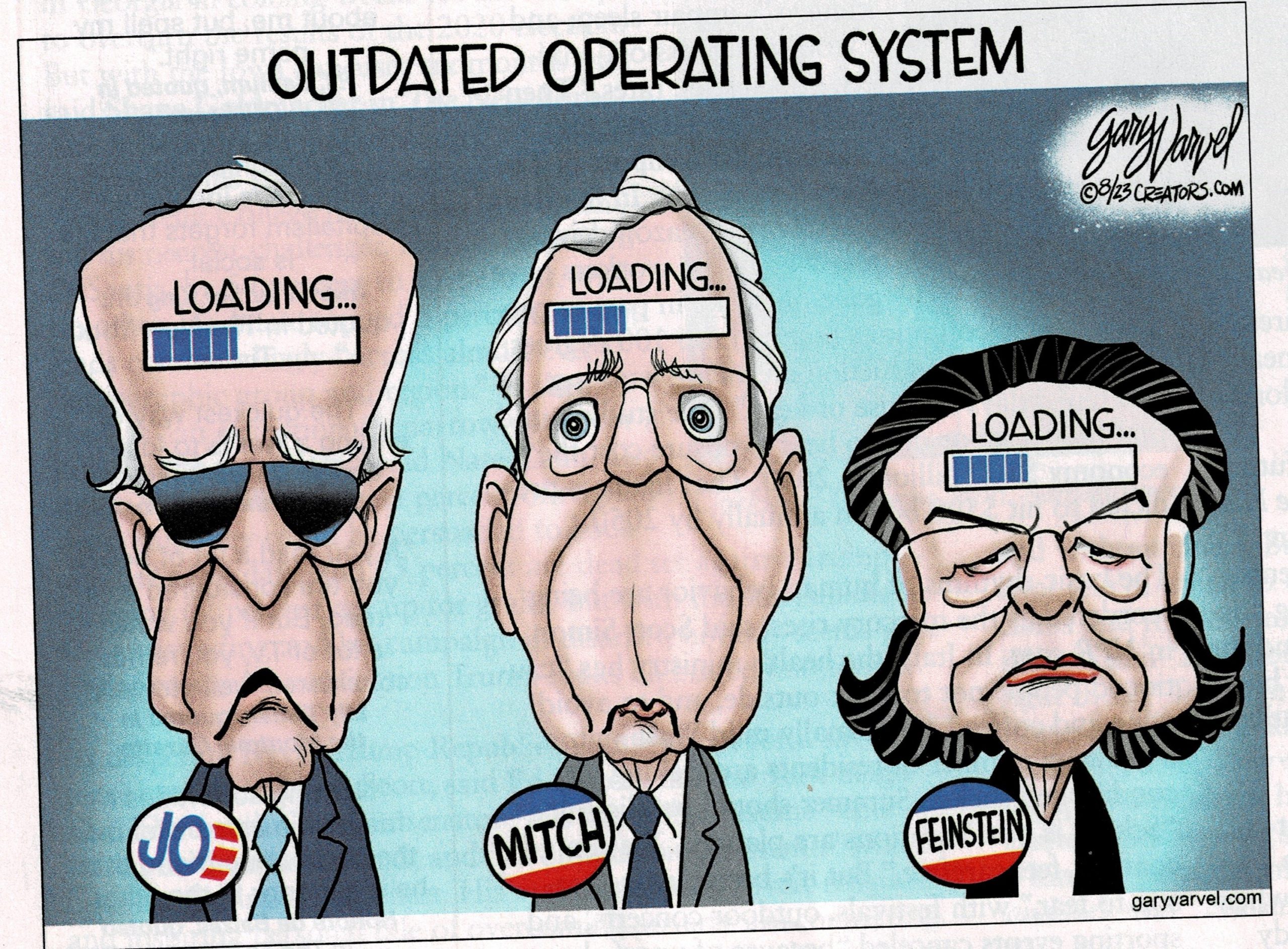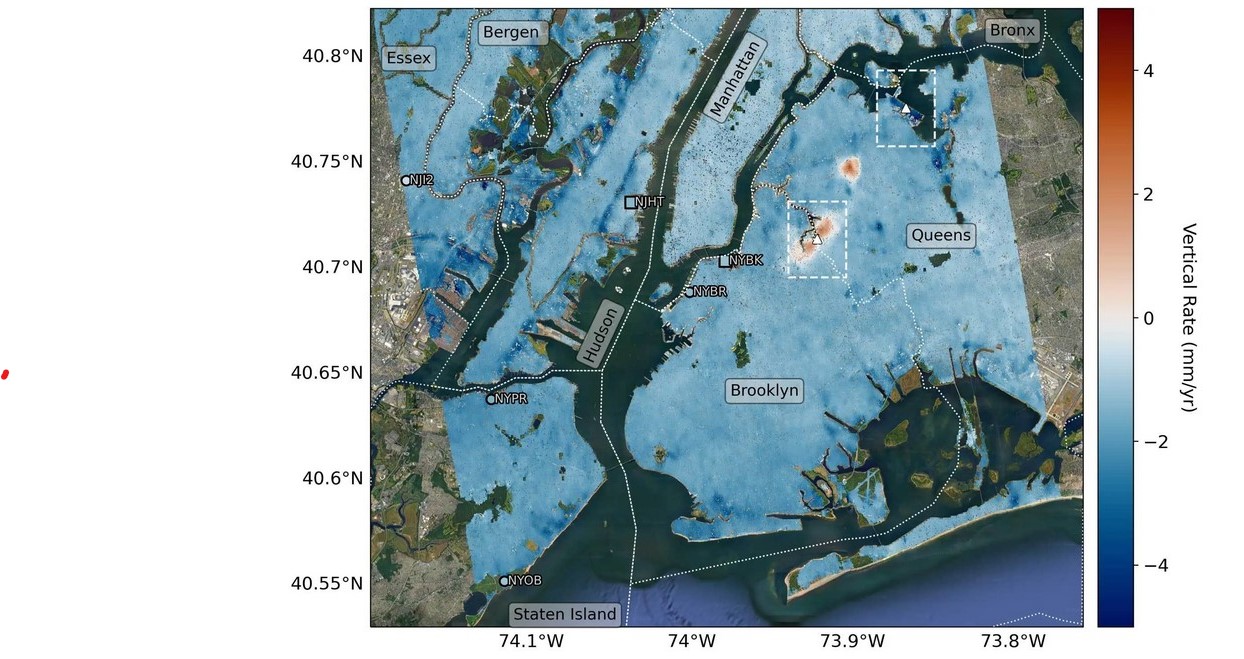From The Week magazine:

Don’t blame the politicians for our gerontocracy. Any of us would find it hard to quit a job that pays well, has endless benefits, automatic prestige and guaranteed self-importance. Blame yourselves. One has more confidence in the current officeholder only because the name is familiar and the party is traditional.
Having said that, mariner is forced to endorse Biden in 2024 if only to buy time for Democracy to find itself and for the Z generation to be old enough to run for office. He will not, however, endorse Chuck Grassley for another term as the Senator from Iowa; he turns 90 in September. He went to Congress with the Reagan Presidency – the beginning of a forty-year abuse of the labor class.
But this post is about all of us – politics, religion and oligarchs are irrelevant. This is a perspective on how all of us live through life. Joseph Campbell, a significant sociologist, often referred to “the arc of the champion”, referencing the travails of Jason as he pursued the golden fleece. Joe meant that we all chase a golden fleece, not necessarily money or fame, just each of us managing our own life from birth to death, each of us with our own unique existential reality to manage.
Dragging out one of mariner’s tropes, Homo sapiens is a tribal species. Further, Homo sapiens has an unusually high number of phases compared to other animals – the phases are called ‘generations’ because a human undergoes sequential brain changes about every 15-20 years.
CHILDHOOD
It is not an intention to compete with Wikipedia. Most readers will remember these transitions within themselves. Childhood starts when the child possesses a simple, one perspective consciousness: “Am I content?” The early years involve intensive learning of language, interpersonal relationships, muscle management and beginning to organize subconscious assumptions. The next change in childhood is discovering the outside world. Going to school is an organized source to learn about culture beyond the family. Experiences with the greater family, playing with others, vacations, shopping, etc., enable the child to form an independent identity. The sense of self changes significantly with puberty; Role play has a new dimension when the child is aware of sexual differences that run deep in the psyche. The final stage of childhood is wrapping up childhood and enabling the child to step independently into their life, ready to experience adulthood. Psychologists suggest this is a standard time frame for all children, sometime between 20 and 25 for men and 18 to 22 for women.
YOUNG ADULT
The physical condition of the young adult is something everyone in subsequent generations wishes they still had. Young adults have a brand-new brain and body that provides energy, rapid learning, and the inexperience that allows exploration, trial and error, and competition. Interestingly, marriage early in this phase is more likely because of the adventurousness of young adults. This generation quiets down as it moves to adulthood which begins some time in the middle thirties.
ADULTHOOD
There aren’t many stages in adulthood. It is a time when wisdom begins to emerge; it is a time when success and survival must yield to society; it is a time when lifelong emotions can become vulnerable to depression and flagellation; it is a time when jobs change, families move, relatives pass away. Yet, it is the most productive generation. It is the generation capable of making great changes in society; it is the generation considered to be experienced experts.
SENIOR CITIZEN
The Social Security age of 65 is an accurate flag that one has become a senior citizen. Seniors have experienced the active generations but subtle changes in a continuously changing society, health, family (especially between generations) and emotional flexibility hint that the body, for the first time since birth, is less than it was. In today’s medical world, life in the sixties and early seventies has improved. Even in the best of health, however, the brain continues to think more slowly and memory isn’t as solid as it used to be. As this generation closes in on the next generation, forgetfulness and physical weakness become realities that must be accommodated.
OLDIES
During the senior citizen generation, many will have the thought that old age ain’t so bad. As the seventies roll into the eighties that opinion may change. The eighties are hard on the bones and visceral functions. It is a time when injuries that occurred in younger generations return with a vengeance; chemical sensitivities become exaggerated; visceral deficiencies become something requiring continuous attention or surgery. But there is a good side: social behavior is easier and there is a feeling that one has done their bit so attitude, given good circumstances, is simpler. [Mariner understands that this is a two-sided coin; many oldies become eccentric and are difficult.]
ANCIENTS
Too many ancients still are elected officials. The link between Ancients and society is gone. Society isn’t relevant to most ancients. The biggest loss is represented by the phrase “use it or lose it”. The frequency of human interaction – particularly many different humans – diminishes social memories and awareness. Dementia shuts down the senses. Being responsible for one’s existential reality is no longer needed. This is all a matter of individual genes; many will have an easier time but most will not be well.
Mariner knows he is part of a small minority that believes many of the issues today are caused by breaking up tribal associations. Nuclear families do not have the social experiences nor the financial backup that should be part of their lives. Smaller communities, neighborhoods and places where “everybody knows my name” provide a better life experience. Commerce, too, would better serve the public in a storefront. Ordering online may be a great convenience to an individual person – at the expense of living a full life.
But the motivation for this post, after providing three pages of background, is the worst infliction of scattered tribes:
The number of older Americans living alone is on the rise. Nearly 16 million people aged 65 and older in the US lived alone in 2022, three times as many who lived alone in that age group in the 1960s. And as Baby Boomers age, that number is expected to grow even more, raising big questions about the country’s future.
Ancient Mariner

 garden with his toy soldiers and trucks when he came upon his first garden snail. He was mesmerized by the odd shape, funny face and the just ‘trotting along’ nature it had. The snail is a wonderful item to doodle about.
garden with his toy soldiers and trucks when he came upon his first garden snail. He was mesmerized by the odd shape, funny face and the just ‘trotting along’ nature it had. The snail is a wonderful item to doodle about.
